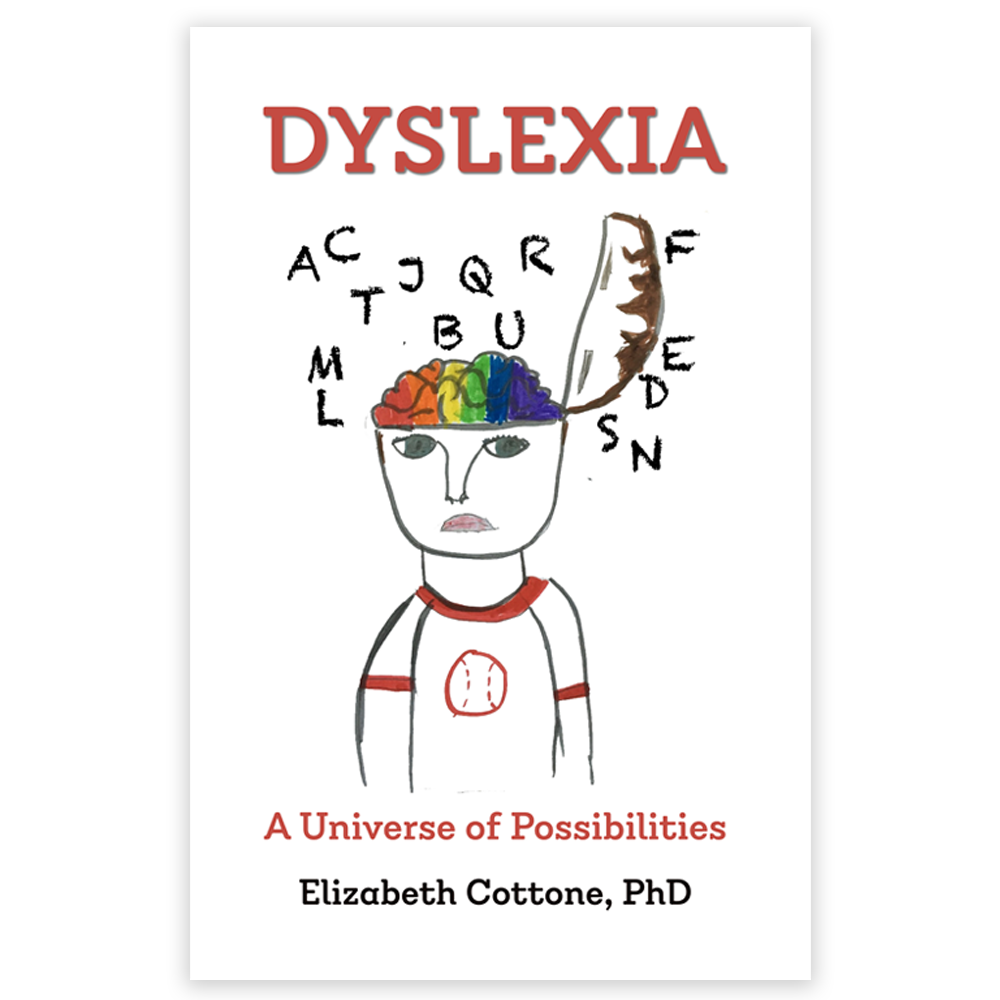Dyslexia: A Universe of Possiblities
Dyslexia: A Universe of Possibilities is the new book by Elizabeth Cottone, PhD. The book combines case studies, education theory, neuroscience, special education policy, and more, to highlight a path forward for the countless curious, inventive, creative, and challenged students born with dyslexia, ADHD, and other neurodiversities.
Reading is a key skill for a fulfilling and effective life. However, for those of us born with the neurological difference called dyslexia, the experience of learning to read is a laborious and sometimes hopeless-feeling process.

Dyslexia is a permanent brain condition, but it needn’t be debilitating. In fact, the strengths of dyslexia often include high levels of cognition and cognitive leaping, logic, and creativity. The trick is surviving school. For the person with dyslexia or ADHD, school can be difficult because it often overemphasizes phonological awareness and requires organizational skills that elude those students.
As Beth explains: “I have observed the lives of many bright children who struggle with reading, avoid print, and read slowly, if at all. Some of them become very accomplished adults and some end up in jail.”
Throughout her unique new book, Beth focuses on science, empathy, and a strengths-based approach to solve the problems and remediate the difficulties that haunt those with the learning disability of dyslexia.
Beth’s message is clear: “I am convinced that, given the appropriate education, people with dyslexia can overcome their brain-based difficulties and mature into creative adult lives, excelling in unique ways.” Once these students successfully complete school, they can thrive because their strengths in advanced reasoning and critical thinking are more likely to be tapped.
Dyslexia: A Universe of Possibilities is now available in paperback and e-book at Amazon.com and at independent bookshops.
Beth Cottone brings great insight, expertise, strength, and heart to her work with students with dyslexia. Through this book, others can now learn and be inspired by her approach. The format — with alternating chapters about individual students she has collaborated with and information about dyslexia and interventions — add to richness for parents and educators alike.
Julia Blodgett, PhD, LCP
This book on dyslexia is brilliant in the way that it gives a holistic picture of children’s development and helps readers understand the relation between dyslexia and a range of other learning disabilities.
What is particularly unique is the way that Dr. Cottone describes the physical, social and psychological experiences that accompany dyslexia as well as the strengths that can emerge from living with dyslexia.
Too few families and teachers think about the connection between dyslexia and ADHD, how dyslexia emerges in different ways at different points in development, or how it feels to experience dyslexia.
This useful book is easy to read and is chock full of ideas for working with students with dyslexia, ADHD, or both. It is a wonderful resource for families and teachers.
Sara Rimm-Kaufman, PhD
Commonwealth Professor of Education, School of Education and Human Development, University of Virginia